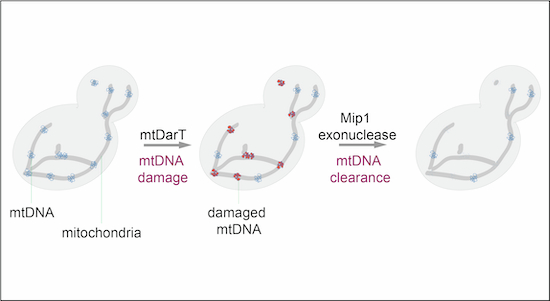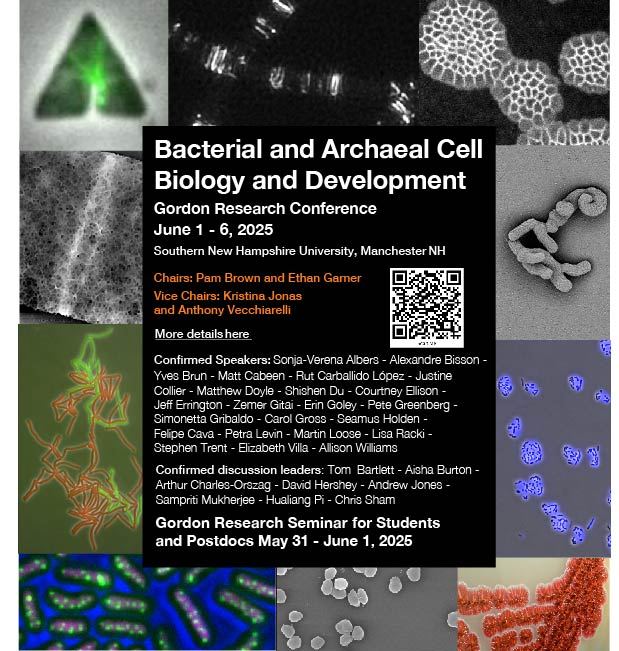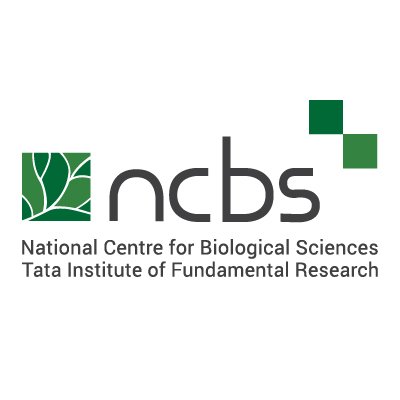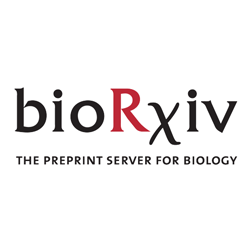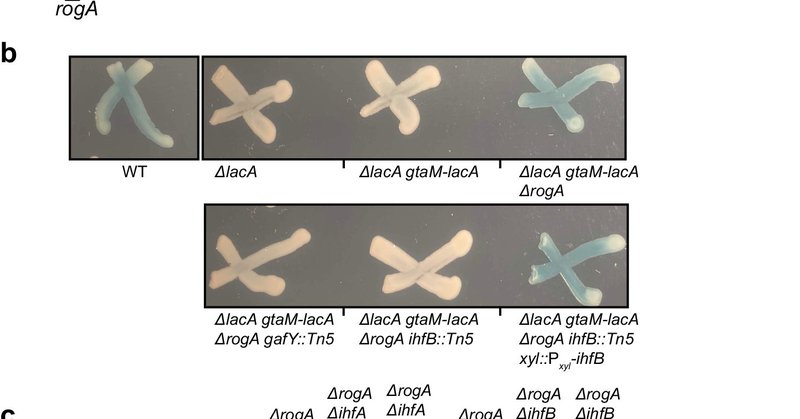
Asha Mary Joseph
@ashamjos
Followers
255
Following
599
Media
5
Statuses
283
Project Scientist @dnarepairlab @NCBS_Bangalore || PhD @iiscbangalore || Molecular Microbiologist || Mom, curly girl, homemaker, DIY buff & road tripper
Bangalore
Joined August 2014
Check out the previous thread on our preprint. https://t.co/YgUtclDAzM We went on to dissect the specific reason behind replisome speed variations. All of this at the level of single cells!
Delighted to share this new preprint from Anjana Badrinarayanan @anjbadri lab. By assessing replication dynamics at the level of single cells, we reveal the intricate relationship between nutrient status and rates of genome duplication in bacteria. https://t.co/Z4qgo3kAKB
0
0
2
Cheers to the entire team from @anjbadri lab. Elated to share my very first corresponding author manuscript!
Now published @CurrentBiology. Happy to share latest work from the lab led by @ashamjos and @Adhikashreni1, describing replisome speed variation in Caulobacter! https://t.co/hiTTH0EB59
3
1
17
Thank you to the fantastic speakers who presented today at our first meeting! We are now accepting submissions for our second meeting on April 7th. Submission link : https://t.co/W1qGraRpAc
1
7
11
When does a DNA polymerase degrade DNA? Read Akshaya’s latest work from the lab to find out more!
Akshaya Seshadri and Anjana Badrinarayanan @anjbadri @NCBS_Bangalore @TIFRScience show that #exonuclease action of replicative #polymerase gamma drives damage-induced #mitochondria #DNA clearance. A new mechanism of mtDNA clearance following damage. https://t.co/wWSZ1NcDV4
2
12
99
New preprint alert!
There's more to SOS response timing than the LexA repressor. In our preprint from the Anjana Badrinarayanan @anjbadri Lab, we uncover a new regulatory layer that imparts temporal structure to the bacterial SOS response. https://t.co/wmqlMD5nNg
0
0
4
Latest work from our group @Esoftbio @NCBS_Bangalore, led by Sree @padmanabh97, is out today in @NatureComms! In colab with @DeepaAgashe @c_kurzthaler we report that the physical confinement acts as a selective pressure on bacterial growth in 3D! [1/16] https://t.co/VErWWENCL9
17
69
423
Registration is OPEN for 2025 Bacterial and Archaeal Cell Biology and Development @GordonConf and GRS. This will be oversubscribed, so register ASAP. We have an amazing lineup of speakers and discussion leaders. Apply now - https://t.co/fJNv5Zs2bN
2
26
64
🌟 NEW! 🌟 Our latest comic with @TinkleMagazine featuring Dr Anjana Badrinarayan is out now! Check out the comic and do let us know your thoughts in the comments below! #sciencecomics #womeninscience #womeninSTEM
1
10
59
🌟NEW COMIC ALERT!🌟 The fourth comic of our collaboration with @TinkleMagazine features the inspiring Prof @hiyaa_ghosh, a neuroscientist at NCBS🧠 Check out the comic and share your thoughts in the comments below! #sciencecomics #womeninscience #womeninSTEM #scicomm
1
13
51
1/ 🌟 Transitioning to Life Science? Connect with industry experts! Join our unique Pitching Event. 🚀 Meet industry leaders, network, and discover potential employers. Showcase your skills and share your CV! 📄 🎯 Register: https://t.co/d3dn2A5Oz4 RT to spread the word
1
14
19
This work was led by a super-talented graduate student Inchara @Adhikashreni1 who initiated this project as part of her Master's dissertation and was supported by Sneha Phadke, another graduate student in the lab.
0
1
1
Nutrient-dependent regulation of replication is distinct from stress-induced replication slow-down, and is likely a strategy to cope with transient fluctuations in the environment.
1
0
0
Replication slows down as cells transition from exponential to stationary phase. A strong correlation exists between replication elongation rates and growth rates, which robustly change in response to nutrient availability.
1
0
0
By tracking fluorescently-tagged replisomes with time-lapse microscopy we precisely measure replication timings and quantify replication rates across diverse conditions, in Caulobacter crescentus, a bacterium that undergoes only single round of replication per cell cycle.
1
0
0
Replication of DNA needs to be aligned with fluctuations in environment, to ensure fully duplicated genomes prior to cell division. Regulation of this process beyond the commitment stage (replication initiation) remains ambiguous.
1
0
0
Delighted to share this new preprint from Anjana Badrinarayanan @anjbadri lab. By assessing replication dynamics at the level of single cells, we reveal the intricate relationship between nutrient status and rates of genome duplication in bacteria. https://t.co/Z4qgo3kAKB
biorxiv.org
In bacteria, commitment to genome replication (initiation) is intricately linked to nutrient availability. Whether growth conditions affect other stages of replication beyond initiation, remains to...
2
14
54
Our work on elucidating transcriptional control of Gene Transfer Agents GTA in Caulobacter crescentus is finally published…
nature.com
Nature Communications - This study reveals that in the alpha-proteobacterium, Caulobacter crescent, a two-tier regulation by transcriptional activation and anti-termination coordinates the...
2
38
102
This beautiful story on bacterial replication led by @zCHENstory is now published. A super fun collaboration for us!
For your enjoyment: a mystery about replisome organization solved with twists and turns by @zCHENstory. Why does the replisome sometimes appear as one bright and one dim vs two bright vs just one spot? Chen even discovered ways to pop the replisomes apart!
2
0
9
Presenting NCBS and @DBT_inStem 's Advanced Biology Lecture Series with the theme "Funneling into Biology," focusing on interdisciplinary approaches to biological questions. Undergraduate and Masters students are encouraged to apply. More details: https://t.co/zOtvxXlRpC
2
24
78






